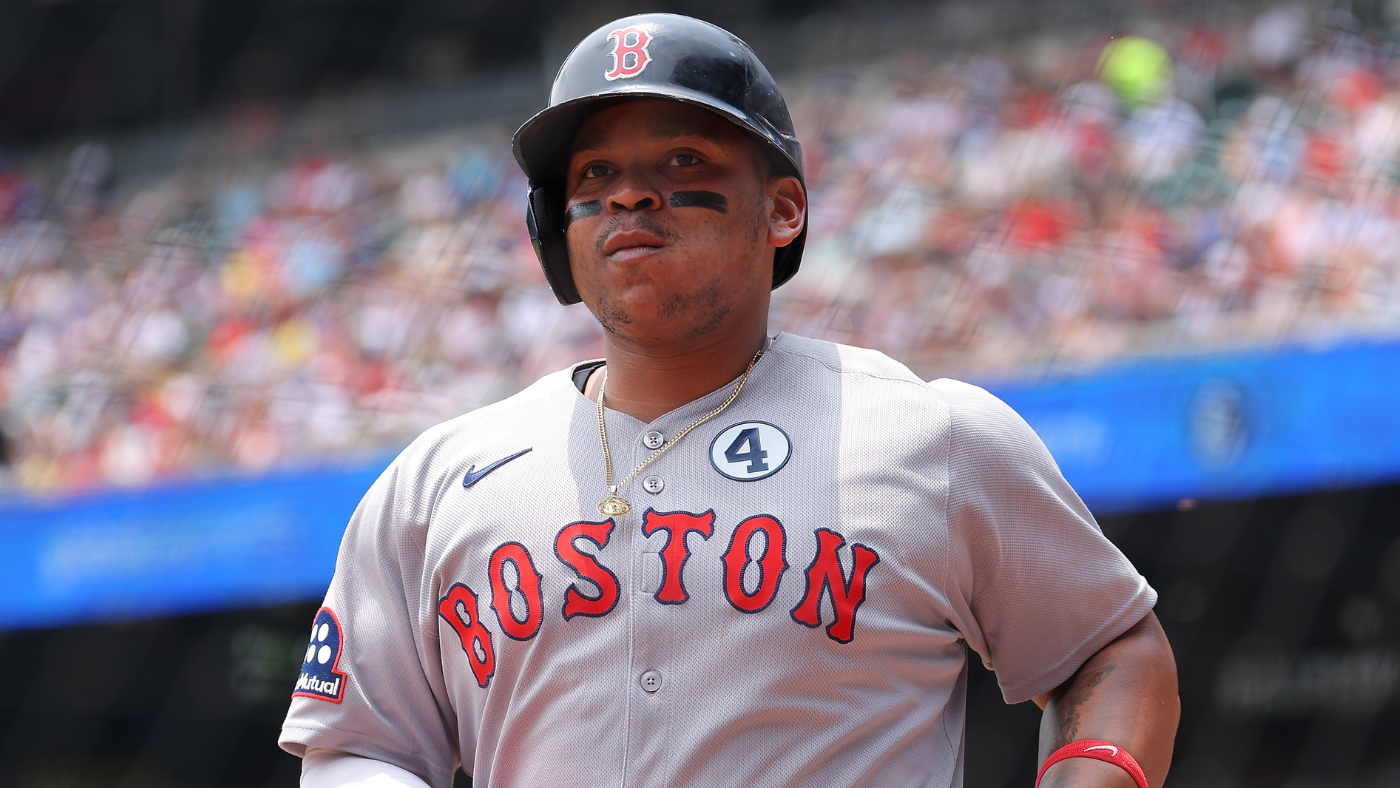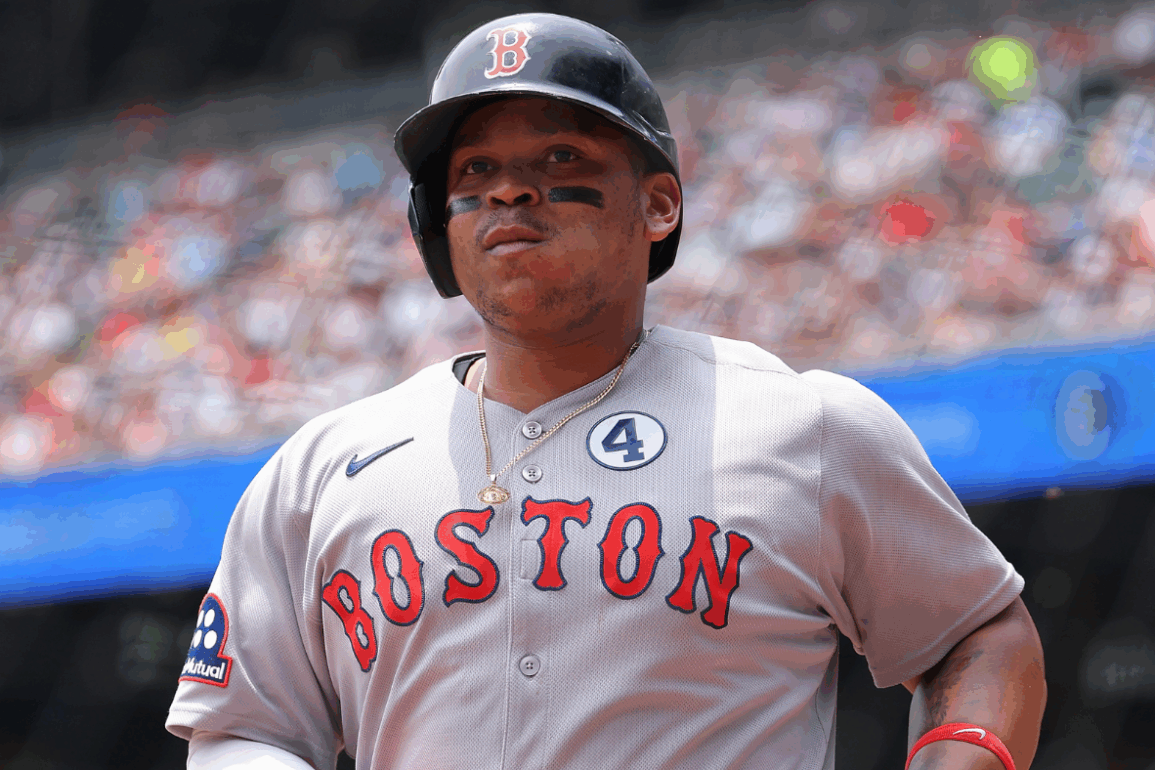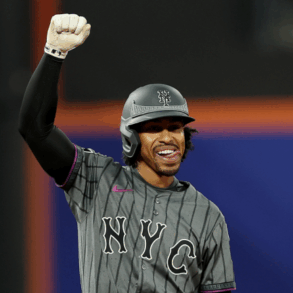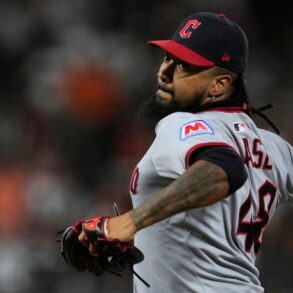Boston Red Sox brass on Monday night held a news conference to address the recent surprise and controversial trade of slugger Rafael Devers to the San Francisco Giants. The Red Sox on Sunday dealt Devers to the Giants as the centerpiece of a five-player trade that netted Boston some young talent in return and also put the roughly $250 million left on Devers’ contract on San Francisco’s books.
On the other side, the Red Sox lost their best hitter, who’s still in his prime, and they did so while in playoff position in the American League (and coming off a sweep of the rival New York Yankees).
“In the end it was pretty clear that we couldn’t find alignment with [Devers], is the truth,” Red Sox CEO Sam Kennedy told reporters on Monday. “We all worked at it over the last several months going back to the offseason. … We had a different vision for him going forward than he had, and we couldn’t get there. We couldn’t find alignment, and we reached that inflection point and made the decision to make a big move.”
That elusive “alignment” was indeed the motivation for the trade, and it euphemistically hints at a two-way controversy that’s defined much of Boston’s season to date. Lurking behind the details of the blockbuster is the fraying relationship between Devers and his now former team. Leading up to and after Boston’s free-agent signing of Alex Bregman this past winter — which the Red Sox did not discuss with Devers ahead of time — Devers balked at the idea of moving off third base to make room for Bregman. It was, after all, the position that Devers had manned for his entire big-league career, and it’s not common for players to be “downshifted” defensively at age 28.
Why Red Sox traded Rafael Devers: Star slugger made spring trade request as relationship with team fractured
Julian McWilliams

From the club standpoint, though, Bregman was obviously the better defender, and moving Devers meant improving what was not a good infield defense overall. Eventually, Devers relented and agreed to become the Red Sox’s full-time DH. It turned out to be a role in which he thrived.
That, however, wasn’t the only upheaval of spring. As CBS Sports’ Julian McWilliams recently reported:
“According to a source familiar with the situation, Devers was asked to take grounders at both third and first base in spring training. He declined — and instead asked for a trade. That request set the wheels in motion for what became a growing divide between the Sox’s best player and the front office, led by chief baseball officer Craig Breslow.”
Then in early May, Red Sox first baseman Triston Casas suffered a season-ending knee injury, which left a void at the position. By all appearances, the club wanted Devers to fill that void. He had never played first base as a professional, and he’d be taking on the role mid-stream with no time to prepare or practice for it. On the other side of things, the shift to first base shouldn’t be an onerous task for a player with more than 8,000 defensive innings at third base in the majors.
At that point, manager Alex Cora said there was no desire to move Devers to first base. Devers, though, said that Breslow had indeed approached him about such a move and that he had told Breslow no. At that point, the dust-up was such that Red Sox owner John Henry had a face-to-face meeting with Devers to clear the air. However much air-clearing was accomplished, it wasn’t enough to keep Devers in Boston.
Red Sox chief baseball officer Craig Breslow echoed the substance of Kennedy’s remarks on Monday and concluded with something of a bold prediction: “We’ve talked a lot about for some reason this team being an example where the whole was not greater than the sum of its parts, and being great teammates and sacrificing and stepping up for each other, and embodying this shared vision we believe that those are principles we need to be faithful to,” Breslow said. “And so at the end of the season, I think we could look back and say we’ve won more games than we otherwise would have because of the way that this roster is now able to come together.”
Breslow also on Monday said “there was no mandate” to offload all of Devers’ contract in the trade but rather to improve the team by creating, in Breslow’s words, “a more functional roster.”
While it’s difficult to say getting rid of a hitter like Devers results in a better team, it does make Boston’s roster less complicated. Because of the influx of premium positional young talents like Roman Anthony, Marcelo Mayer, and Kristian Campbell, the Red Sox were managing a bit of a bottleneck in terms of playing time. The trade of Devers largely in exchange for pitching does indeed open up roles and consistent playing time for those high-ceiling young players. That, though, doesn’t mean the Red Sox will be better in the here and now without Devers or even in the seasons to come.
As for Boston’s return in the trade, Breslow most notably mentioned Jordan Hicks‘ potential as “a dominant late-inning reliever” and noted that the Red Sox have “identified some development opportunities” with Kyle Harrison that would allow him to become a presence toward the front of the front of the big-league rotation.
As for Devers himself, the new Giant will have his say at his introductory press conference at Oracle Park on Tuesday afternoon.
This post was originally published on this site be sure to check out more of their content.







